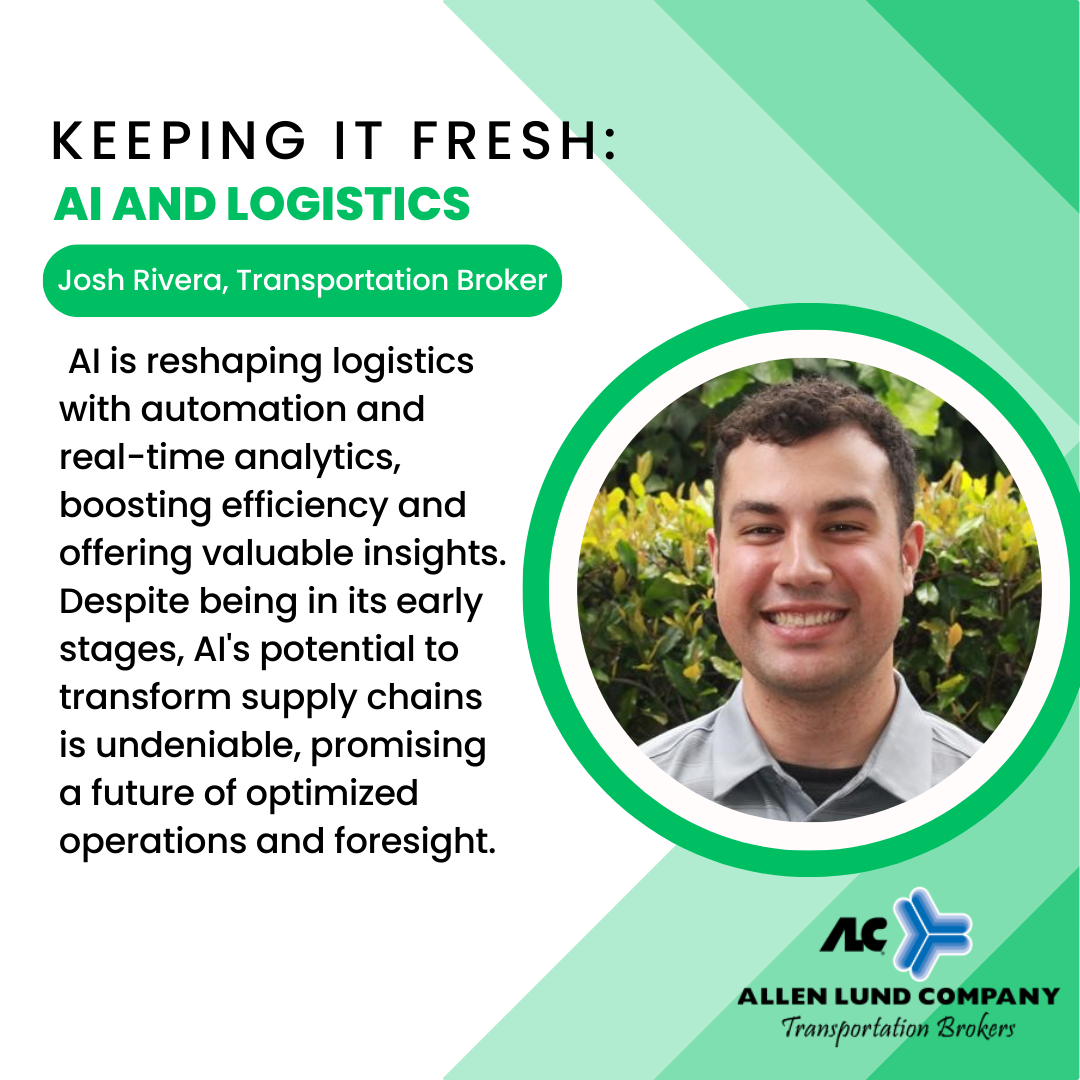
Everyday, we hear more and more about how AI is being implemented in all sorts of industries across the globe. There is a need to automate certain processes in all aspects of business to increase efficiency, especially in the logistics industry. Though we are in the early stages of adopting AI and learning where it can provide the most benefit, we are already seeing some of this technology in warehouse automation and robotics and the early stages of driverless vehicles. AI can assist in data collection and analytics to provide real-time information.
In Bart De Muynck’ Forbes article The True Role of AI in Logistics, he states, “AI is being used to improve data quality, generate data through Generative AI when real data is not available and provide valuable insights through predictions (like an ETA or dwell times) or forecasts (available capacity of assets or at ports). By implementing real-time visibility, companies can share information, updates, and forecasts with suppliers, customers, and partners.” We know AI can offer much but, just like everything else, it’s not perfect. Transportation is and will remain a human central function, but paired with AI technology can propel the industry forward. The key is for companies to stop looking in the past, and use this information to help predict and adjust for the future.
Even in the early stages, AI is demonstrating its value in the logistics industry. As time progresses, its capabilities will only improve. It’s only a matter of time before we witness its widespread adoption. AI’s limitless potential is a compelling prospect for every industry, including logistics, in managing and optimizing their supply chains.


